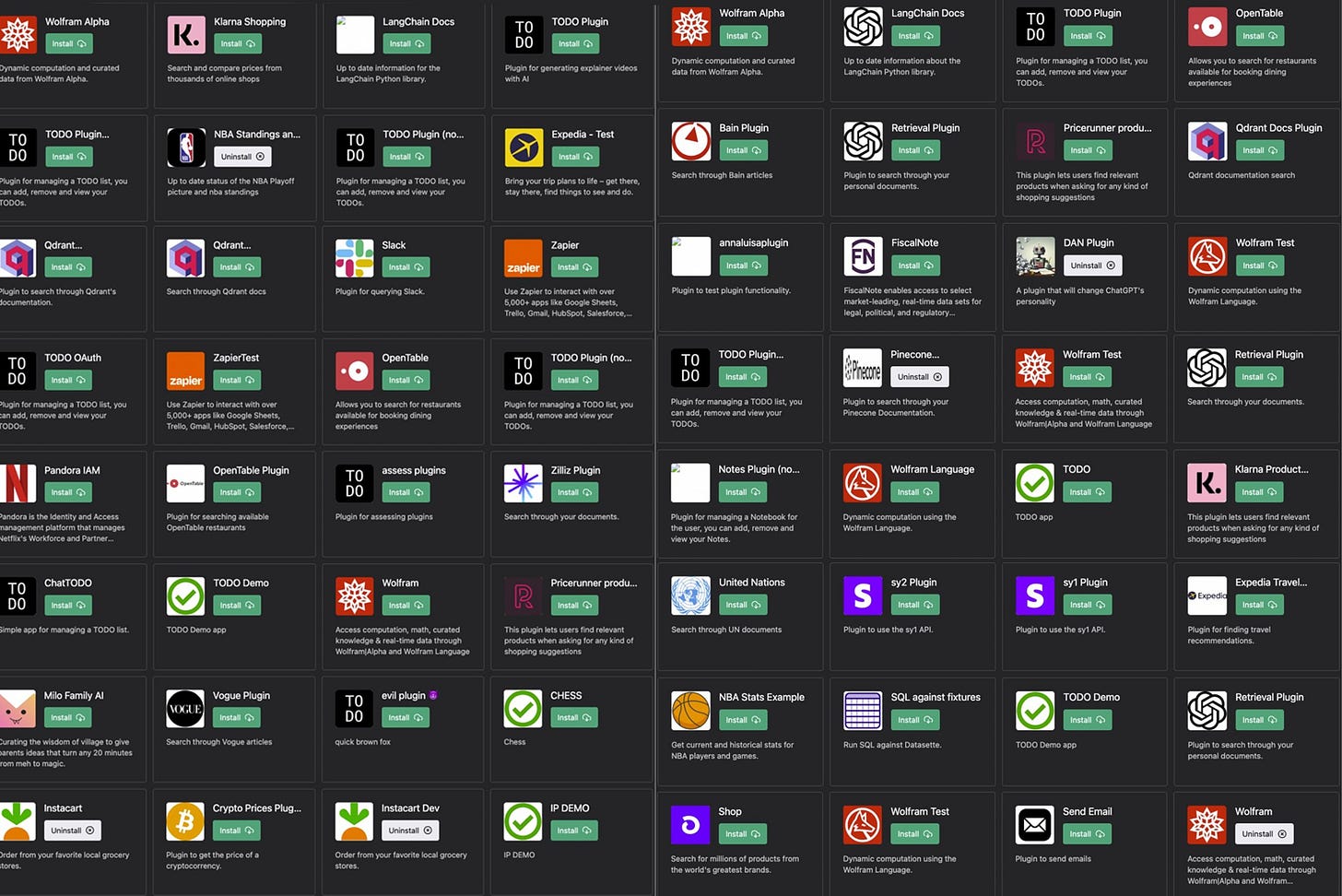ChatGPT Plugins
ChatGPT has been transformed into a platform last week, thanks to the addition of plug-ins by OpenAI. This major upgrade now enables the chatbot to access exclusive data and utilize third-party services.
Previously, ChatGPT had limited access to information as it was restricted to its training data which only went up until 2021. With the incorporation of plug-ins, the chatbot can now explore the internet and engage with particular websites, potentially expanding its functionality and transforming it into a broad-ranging interface for various services and websites. OpenAI describes this advancement as allowing other services to act as ChatGPT's "eyes and ears."
GitHub Copilot X is now powered by ChatGPT4
GitHub Copilot is undergoing advancements to introduce chat and voice interfaces, facilitate support for pull requests, provide answers to queries regarding documentation, and incorporate OpenAI's GPT-4 for a customized and tailored developer experience.
Our work to rethink pull requests and documentation is powered by OpenAI’s newly released GPT-4 AI model.
Even though this model was just released, we’re already seeing significant gains in logical reasoning and code generation. With GPT-4, the state of AI is beginning to catch up with our ambition to create an AI pair programmer that assists with every development task at every point in the developer experience.
Moreover, it’s helping GitHub Copilot understand more of a developer’s codebase to offer more tailored suggestions in PRs and better summations of documentation.
Google Officially Releases Bard
While Google has referred to Bard as an "experiment," the chatbot has been made available to a limited number of trusted testers since February and is now open to more users through a beta access program. Google has also emphasized that user feedback will be essential in helping Bard improve, as it is still a work in progress and may not always function as intended
Canva joins the pack with its Integrated Generative AI
The company has introduced a substantial overhaul of the platform, which, despite its familiar appearance, now includes a range of advanced AI text and image generation features integrated throughout the user interface. Canva is not merely using these features as technology demonstrations; instead, it is treating AI as a genuine extension of its interface.
As an example, Magic Write was initially launched as a Canva Docs feature in late 2022, offering word-generation capabilities based on prompts. Now, after just four months, Magic Write is available across all Canva projects. The same applies to other features, such as :
Magic Edit, which generates images from prompts rather than text,
Magic Eraser, which removes unwanted objects,
Magic Design, which quickly transforms an uploaded image into various contexts such as posters or brochures,
and Magic Presentation, which converts a prompt into a slide deck.
Microsoft introduces 'Bing Image Creator' powered by DALL-E
After incorporating ChatGPT into the Bing search engine, Microsoft has now integrated another OpenAI product, the AI image generator DALL-E 2.


That’s all for this digest, ChatGPT folks!
Thanks for being a part of this community and we can't wait to share our next findings with you! Feel free to share your feedback, like, and comment below!







Bing's partnership with OpenAI has brought an unprecedented position in the search engine race, or shall I say AI search engine race.